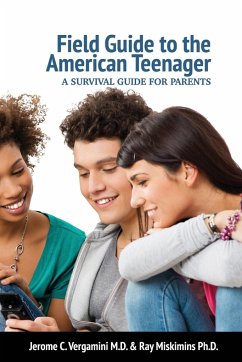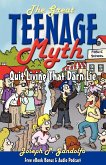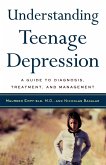This book was written in an effort to share our combined knowledge of teens, gained both as mental health professionals and as parents. We wanted to put together something that parents could understand, short and to the point, with as little psychological jargon as possible, and most importantly, something that would be useful. Our planning began with a look at the various aspects of the teenage experience that regularly impact upon parenting. We decided to include information on development, communication, schools, peer relationships, families, sexuality, religion, drugs and alcohol, and mental health problems, and to attempt to frame everything around these subjects. Throughout the book we have brought our different perspectives into play. Dr. Vergamini, a child and adolescent psychiatrist, has for several decades consulted to many child and adolescent evaluation and/or treatment programs (inpatient, outpatient, mental health, substance abuse, etc.) and operated a private medical practice (in Oregon). Dr. Miskimins, a clinical psychologist, draws from his experiences directing an inner-city program for youth in Colorado, serving as Clinical Director (then as Executive Director) of an adolescent residential treatment center for emotionally disturbed teens in Oregon, and maintaining a long-term private practice. In addition, both of us are family men, still married to the same women we started out with, and each has three children, now grown. And each of us has had a child with special needs. The purpose of this book is to give some basic information on the most important topics relating to parenting teenagers. We also have tried to provide some resources to help parents when it is needed beyond the scope of this book. The Field Guide cannot be an encyclopedia, but can be a starting place to begin knowing more about teens and to try to bridge the gap between parent's own memories of what that was like and the changing times. We will try to give examples where we can. We will attempt to anticipate questions, but we know there may be gaps. For this reason, in our last chapter we will discuss some means to get some help with some of your questions which we may have not answered in this book. We would like you to keep this in mind as you read, and to jot down questions that you may have or information that you seek, so that we or others can address those issues for you. As you read on, the questions may be answered, or they may raise further questions. Adolescence is an intriguing time. For some reasons that we may not always understand, adults may tend to treat teens as mysterious creatures, a group of people that are difficult to fathom. Maybe it is because of how they band together, or their peculiar use of language, or their strange dress codes, or the seemingly constant protesting, or their tendency to test limits, but it might be because adults have developed some amnesia for the trials and tribulations of that time in their own lives. If you can't remember what being a teenager trying to grow up in this society was like, then you are likely to see the current crop of adolescents as creatures that can't be understood, and therefore to be feared. It is much like some of us fear spiders, because they have eight legs and move fast, and we don't know much about them except that a few are dangerous. Understanding and remembering is the reason that we write this book. We hope to inform adults enough about the teenagers around them, that they do not have to be uneasy or fearful when they deal with them. We want parents to enjoy them, laugh with them, revel in their successes, and help them through their failures. We want adults to appreciate their pains and their joys, and comfortably relate to their kids through both. Ultimately we want them to grow up, survive, and be good citizens. ¿








